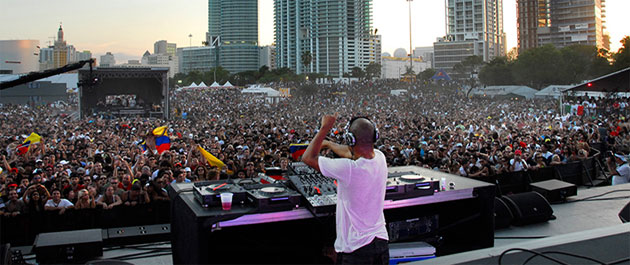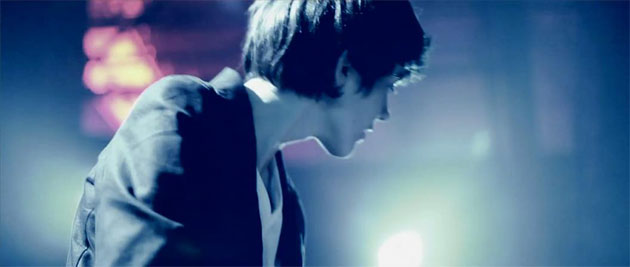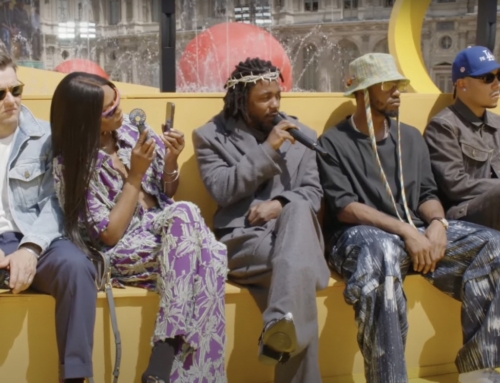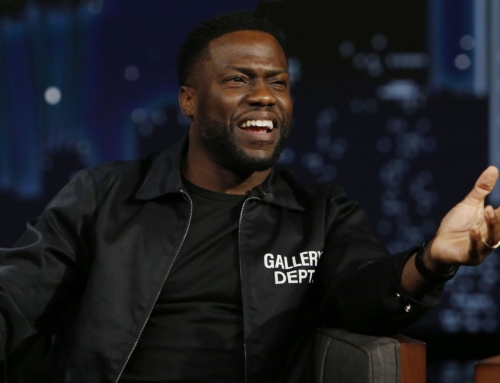 If 2010 was the year EDM officially went mainstream in the U.S., after two years of build up, 2012 signifies the rise of the producer prodigies. These young adults, all under 25, began producing as young teens, but unlike their older industry peers, never spent years playing in clubs, captivating an audience with solely with their sounds. In some cases, they’re thrust front and center, headlining arena tours, like Avicii, or have the clout to turn down pop star collaborations, like Porter Robinson.
If 2010 was the year EDM officially went mainstream in the U.S., after two years of build up, 2012 signifies the rise of the producer prodigies. These young adults, all under 25, began producing as young teens, but unlike their older industry peers, never spent years playing in clubs, captivating an audience with solely with their sounds. In some cases, they’re thrust front and center, headlining arena tours, like Avicii, or have the clout to turn down pop star collaborations, like Porter Robinson.
Why, after years of EDM stars being seasoned professionals, is youth suddenly a factor in promoting a producer, who, with the exception of average to stellar production skills, only has a minimal back catalog? The New York Times, in detailing the rise of Zedd, pins it on Skrillex. “The record labels now are all saying, ‘We’ve got to find the next Skrillex,’ ” Hard promoter Gary Richards said to the press. But, is Richards’ assessment, of major labels acquiring the next young hot thing behind a DJ booth, too simplistic?
Zedd, as well as Avicii, are being picked up by major labels that both want to capitalize on a trend and get a hit. The New York Times calls this “short-term, high-level contracts.” Avicii, receiving $750,000 from Universal to release levels, is the paradigm. Unlike a pop star or rocker, however, Avicii has no contractual obligations with Universal to follow-up with new material.
On the other hand, as major labels are less influential in the EDM sphere, the attention to younger producers falls squarely on older DJs themselves, who have incorporated their tracks into setlists, and websites like Beatport that make accessing new music relatively easy. Rather than performers going through the older channels of recognition – playing in clubs, and perhaps securing a residency, first and then releasing new material, much like established DJs like David Guetta and others have done, the internet streamlines the full process, accelerating a prodigy’s already-fast ascent. In fact, as an extreme example, Robinson never saw a DJ play live, until his own first gig at 15.
That’s not to say this younger crop of producers never had to work for recognition. Zedd, as the New York Times explains, began playing classical music and drums as a child. This interest and skills translated to computerized sounds. Winning two Beatport competitions pushed him ahead, and opening for Lady Gaga and getting mentored by Skillex certainly didn’t diminish career visibility, either.
But are skills simply the straightest way to success? Robinson has explained that the current EDM trend puts them in the right place at the right time. “If you’ve been writing dance music for a long time, like me and Zedd and Skrillex have, you’re well positioned to take advantage of this scene,” he told the New York Times. “We’ve been paying dues since we were young teenagers, but all of a sudden our music is wanted. So that’s what creates the impression of a quick rise.”

What happens, after EDM disappears from the U.S. mainstream, like it did in the early aughts? Some of these artists have other aspirations. Madeon, who began composing at age 11 and gained attention this year with mega-mashup “Pop Culture,” eyes a general producing career. “It is risky long-term to base your career around a narrow style that may turn out to be a fad,” he stated in an email. “I’m currently producing records for other bands and artists that are not in the electronic world, and it’s extremely fun and fulfilling. It’s something I’ll probably do more of in the future.”
Although the phrase “prodigies” conjures images of eight year olds playing Paganini or Brahms or films like Searching for Bobby Fischer, all, regardless of age, shoulder a large burden quickly. In the case of EDM, the performers do not always appear ready, despite excellent production skills, for this responsibility. Avicii, with only a handful of hits to his name, does not have the back catalog to create an hours-long club set, and his two-hour festival and stadium sets frequently default on the latest hits, with the same tracks appearing from one set to the next. The arenas, additionally, are not always full.
While Avicii certainly has the skills to do an hour-long festival set, his headlining performances seem drawn out and patched with filler. Even though “Levels” deserves to be a hit in its own right, particularly compared to other vocal-driven EDM, basing an arena tour around a single mega-hit is unstable. Even one-hit pop stars enhance their performing skills as solid openers. Avicii, on the other hand, went from obscure opener to festival and tour headliner in two years.
Is squeezing all the possible cash out of single hit-making performer beneficial for all parties? As the DJ prodigy is relatively new, listeners and audiences must wait to see what happens. Will Avicii produce another “Levels”-like hit and continue his high? Can Madeon prove himself as more than a good mashup maker? Fate, for those with such a quick rise, goes in two divergent directions.
“If you look at people who are creative geniuses, and look back, a lot of them are prodigies,” said Boston College psychology professor Ellen Winner told CNN. “You can say that prodigies are our best hope. They are our future. They are precious resources.”
On the other hand, prodigies transition from mimicry to creativity at lightning speed – and within the public eye if they’re an entertainer of some kind. As a result, Shelley Carson, author of Your Creative Brain told CNN, “A lot of prodigies tend to burn out, or sometimes they just get discouraged when, during the ordinary process of development, other people catch up with them and they’re no longer special.”
As these performers, from Alesso to Zedd, are a relatively new phenomenon, what do you think could happen to their careers?




